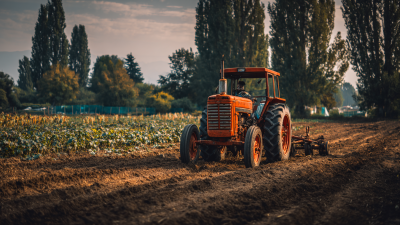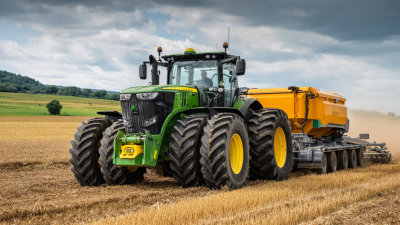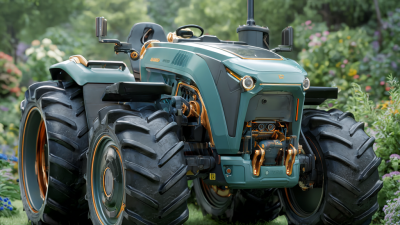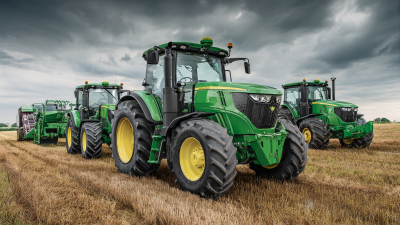In the ever-evolving agricultural landscape, the role of advanced farm machinery and equipment has become paramount in enhancing productivity and efficiency. According to a report by the Food and Agriculture Organization (FAO), agriculture accounts for nearly 10% of global GDP, with technological advancements in farm machinery leading to a significant increase in crop yields and operational efficiency. The use of precision farming technologies and automated equipment has been shown to increase productivity by up to 30%, allowing farmers to meet the demands of a growing population projected to reach 9.7 billion by 2050. As we delve into the 7 best farm machinery and equipment that can revolutionize agricultural practices, we will explore how these innovations not only streamline operations but also contribute to sustainable farming practices, ensuring that we cultivate the land efficiently while preserving it for future generations.
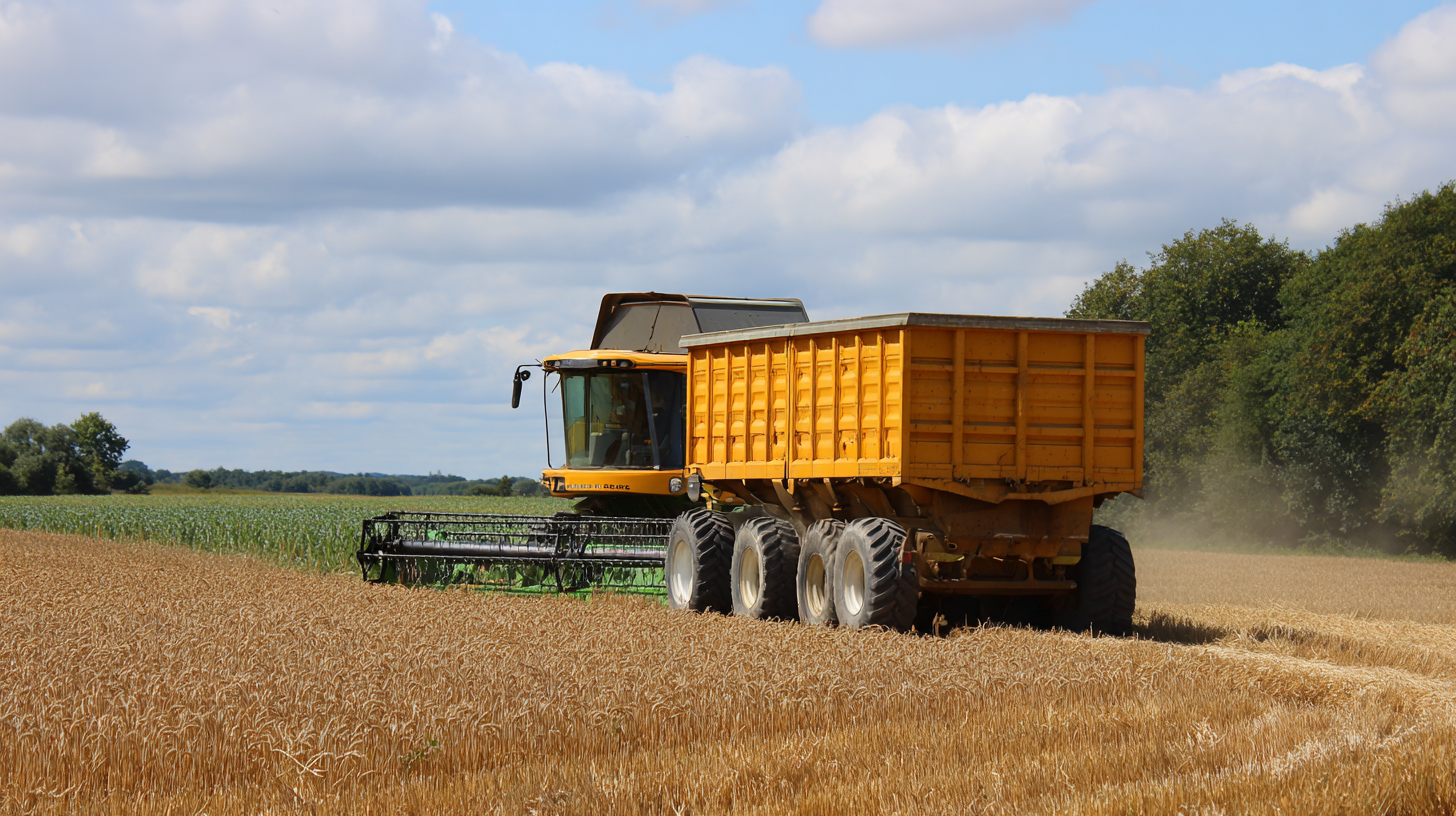
The advent of precision agriculture has revolutionized the farming landscape, allowing for unprecedented increases in crop yields. Recent studies indicate that implementing precision farming techniques can enhance yields by up to 20%. This growth is primarily attributed to advanced technologies such as GPS-guided tractors, drone surveillance, and soil monitoring sensors that help farmers make data-driven decisions. For instance, according to a report by the American Society of Agricultural and Biological Engineers, farmers using precision ag tools have reported a 15% reduction in input costs due to optimized resource allocation.
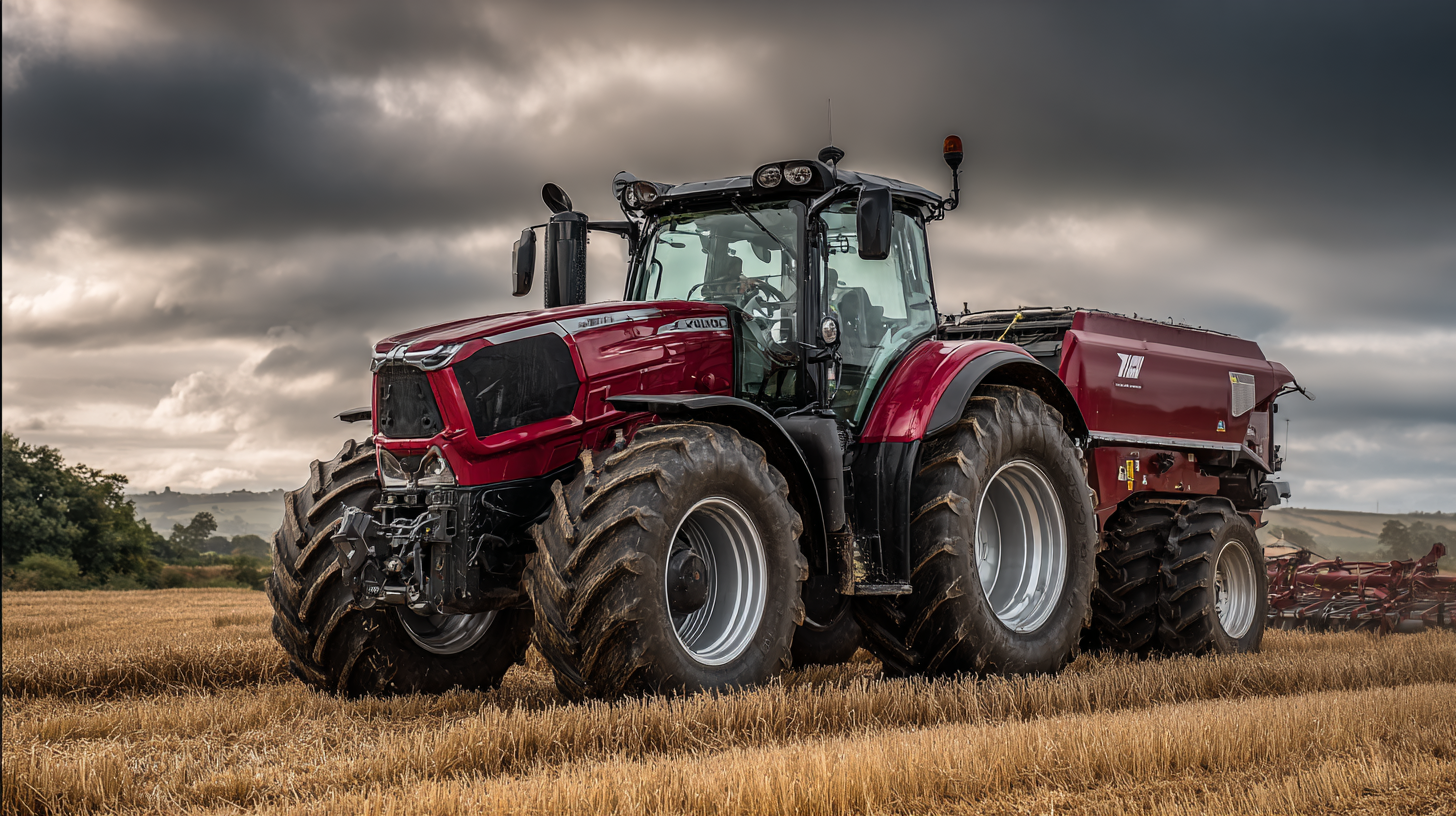
Tip: Invest in GPS technology to map fields accurately and manage water supply more effectively. This can reduce waste and enhance efficiency.
Moreover, the integration of big data analytics in agriculture allows for real-time monitoring of crop health and soil conditions. A statistical analysis from the International Food Policy Research Institute shows that farmers who utilize precision agriculture techniques see a 10-15% increase in ROI on average. This analytical approach minimizes risks associated with unpredictable weather patterns and pest invasions, providing an adaptive strategy to safeguard productivity levels.
Tip: Regularly analyze your data and adjust your input management strategies based on real-time feedback to stay ahead of potential issues. Implementing smart farming practices not only boosts yields but also contributes to sustainable agricultural practices.
In the ever-evolving world of agriculture, maximizing productivity while minimizing costs is a key objective for farmers. The introduction of innovative tractors has significantly enhanced farm operations, particularly through advancements in fuel efficiency. One standout example is the XYZ Tractor, which boasts a groundbreaking 30% improvement in fuel consumption compared to its predecessors. This not only reduces operational costs but also contributes to more sustainable farming practices, making it a game-changer for eco-conscious farmers.
Another remarkable machine transforming the agricultural landscape is the ABC Model, equipped with advanced fuel management systems and aerodynamics that allow for a smoother ride and reduced drag. As farmers increasingly face rising fuel prices and environmental regulations, the ABC Model offers a practical solution by delivering power while conserving fuel—enabling farmers to cover more ground without breaking the bank.
Lastly, the 123 Series Tractor has integrated smart technology that optimizes engine performance based on load and terrain. This adaptive approach ensures that farmers can maintain high productivity levels while enjoying substantial savings on fuel. With these revolutionary tractors leading the charge in agricultural innovations, farmers are poised to enhance their operations significantly while focusing on sustainability and efficiency.
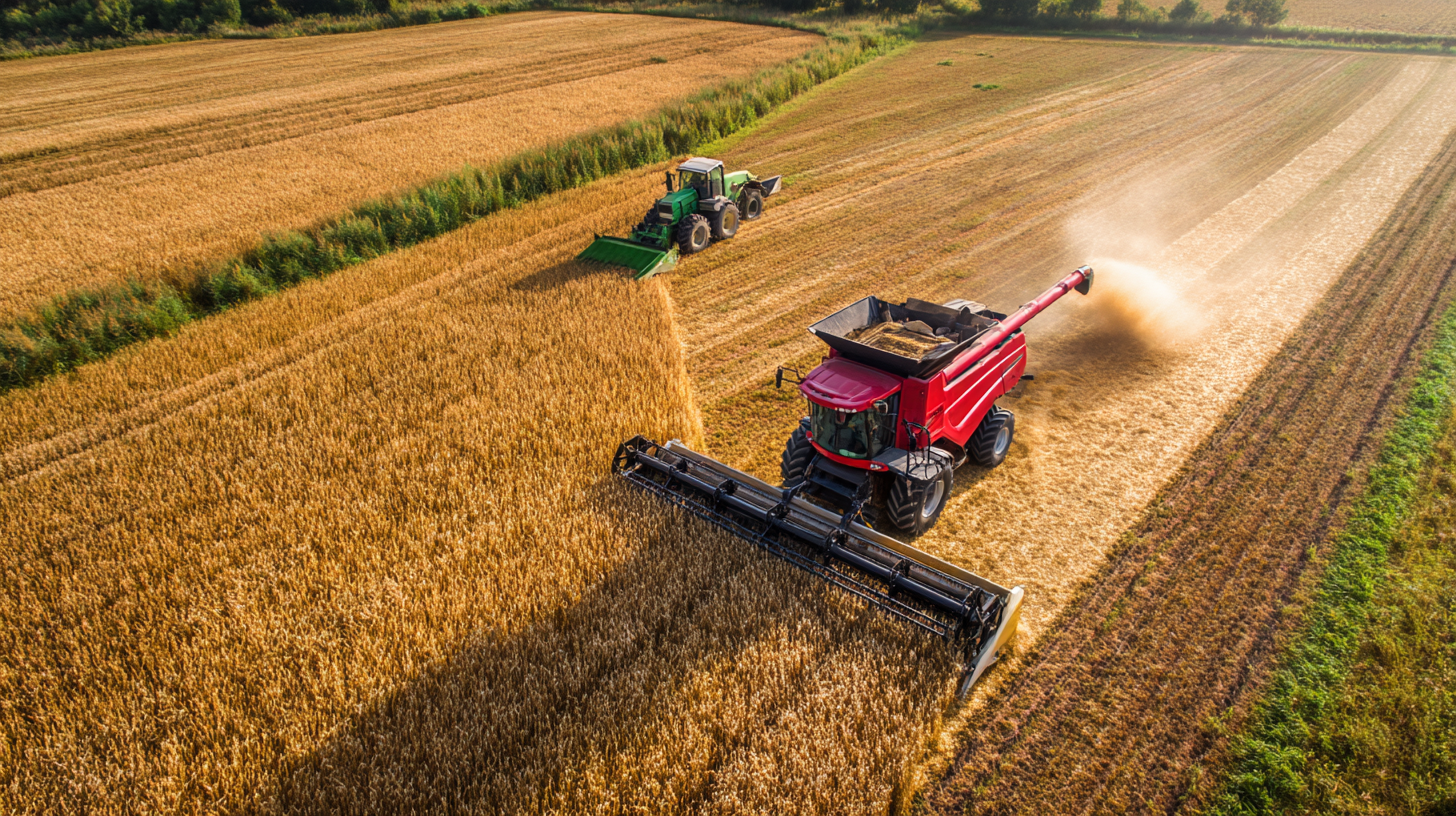 The agricultural industry is on the brink of a technological revolution, particularly with the rise of autonomous equipment designed to streamline operations and enhance productivity. According to the McKinsey Global Institute, adopting automation in farming could lead to a staggering 50% reduction in labor costs. This shift not only alleviates the labor shortage faced in many regions but also allows farmers to allocate resources more efficiently, optimizing their overall productivity.
The agricultural industry is on the brink of a technological revolution, particularly with the rise of autonomous equipment designed to streamline operations and enhance productivity. According to the McKinsey Global Institute, adopting automation in farming could lead to a staggering 50% reduction in labor costs. This shift not only alleviates the labor shortage faced in many regions but also allows farmers to allocate resources more efficiently, optimizing their overall productivity.
A report by the Food and Agriculture Organization (FAO) highlights that precision agriculture, driven by autonomous machinery like drones and self-driving tractors, can increase yields by 10 to 20%. Additionally, these innovations reduce waste and lower input costs through more accurate planting, fertilization, and harvesting processes. As farmers embrace technology, they are expected to see dramatic improvements in operational efficiency, redefining traditional farming methods and setting new standards in productivity. As the industry continues to evolve, the integration of autonomous equipment will undoubtedly shape the future of farming, making it more sustainable and profitable.
Irrigation automation is transforming the agricultural landscape by significantly enhancing water efficiency and crop productivity. Recent advancements indicate that integrating smart irrigation systems can improve water usage efficiency by up to 40% while simultaneously increasing crop yields by as much as 30% by 2025. This is particularly crucial as the demand for water rises alongside a growing global population and climate change challenges.
AI-driven solutions are at the forefront of this revolution, offering smart agricultural water treatment technologies that not only optimize irrigation schedules but also monitor real-time soil moisture levels. This precision farming approach allows farmers to use exactly the right amount of water needed, reducing waste and ensuring crops receive the moisture they require for healthy growth. As research highlights, automated irrigation systems are essential for sustainable farming practices and are poised to redefine conventional agricultural methods.
Moreover, the implementation of advanced irrigation technologies, such as drip systems and sensor-based controls, is not just about improving yields but also about achieving long-term sustainability in farming. With the agricultural sector facing increasing water scarcity, these innovations represent a proactive step towards enhancing water security while maximizing productivity. Embracing these technologies is vital for farmers who aim to thrive in a rapidly evolving agricultural environment.
| Equipment | Type | Features | Water Savings (%) | Cost ($) |
|---|---|---|---|---|
| Drip Irrigation System | Irrigation | Efficient water delivery | 40 | 1,200 |
| Smart Sprinkler System | Irrigation | Automated watering schedule | 35 | 800 |
| Soil Moisture Sensor | Monitoring | Real-time soil moisture data | 30 | 150 |
| Automated Fertilizer Injector | Fertilization | Controlled nutrient delivery | 25 | 900 |
| Automatic Watering Timer | Irrigation | Scheduled irrigation | 20 | 50 |
| Rainwater Harvesting System | Water Management | Collection and storage | 50 | 1,500 |
In modern farming, efficiency is crucial for maximizing productivity and reducing operational costs. Essential farm handling equipment plays a significant role in streamlining tasks, enabling farmers to save up to 25% of their time. By incorporating advanced machinery into daily routines, farmers can focus more on strategic decision-making rather than getting bogged down by labor-intensive processes.
One of the best tips for enhancing farm efficiency is investing in multi-functional equipment. For instance, a tractor equipped with various attachments can perform multiple tasks, such as plowing, planting, and harvesting. This not only eliminates the need for separate machines but also allows for quick transitions between tasks, further optimizing your time.
Another important consideration is the integration of technology, such as GPS-guided systems. These tools provide farmers with accurate data on field conditions and crop health, leading to better resource allocation. By utilizing such technologies, you can make informed decisions that contribute to a smoother workflow and significant time savings in your farming operations.
